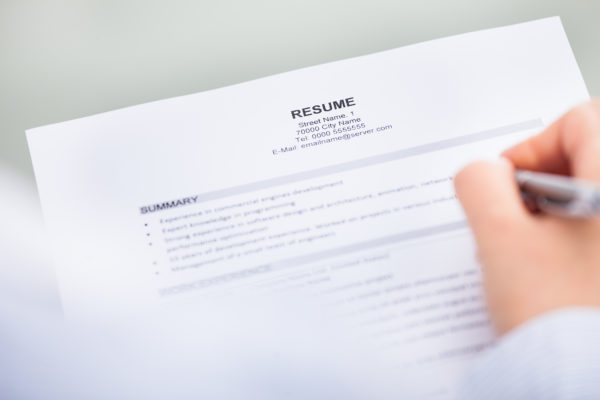The job interview is the most important aspect of your search for a new career opportunity. The way you interview will determine whether you get a job offer. From the moment you walk in, the employer will begin evaluating you on a variety of levels, such as your appearance and the way you express yourself. If you are prepared, you will project a positive, professional image that will give you a competitive advantage. Follow these suggestions to be your most effective in face-to-face meetings with potential employers.
Begin sentences with action verbs. Portray yourself as someone who is active, uses his or her brain, and gets things done. Stick with the past tense, even for descriptions of currently held positions, to avoid confusion.
Quantify your experience wherever possible. Cite numerical figures, such as: sales achieved, pipelines, and costs saved, which demonstrate progress or accomplishments due to your work and throughout your career.
List your technical knowledge first in an itemised fashion. Use as many technical/buzz words as you can, which reflect your work and academic experience. List all software programs you’ve used throughout your career. This will catch the eye of busy hiring managers and scanners conducting key word searches.
List your qualifications in order of relevance, from most to least. Only list your degree and educational qualifications first if they are truly relevant to the job for which you are applying. List your experiences in chronological order.
Don’t sell yourself short. Treat your resume as an advertisement for you. This is in general the biggest mistake of all CVs. Be sure to highlight all of your strengths. If you’ve got a valuable asset that doesn’t seem to fit into any existing components of your resume, list it anyway as its own resume segment as Additional Information.
Be concise. As a rule of thumb, resumes reflecting five years’ experience or less should fit on one page. More extensive experience can justify using a second page. Consider three pages (about 15 years or more experience) an absolute limit. Avoid lengthy descriptions of projects of which you were only a part. Consolidate action verbs where one task or responsibility encompasses other tasks and duties. Minimise usage of articles (the, an, a) and never use “I” or other pronouns to identify yourself.
Omit needless items. Leave all unnecessary items off your resume, such as health, irrelevant awards, irrelevant associations and memberships, irrelevant publications, irrelevant recreational activities.
Have someone you trust review your resume. Make sure you pick someone who is very attentive to details, can effectively criticise your writing, and will give an honest and concise opinion. Seriously consider their advice. Even better, get a third and fourth opinion if necessary.
Re-Read and Proof-read, proof-read, proof-read. Spell-check and re-spell-check and be sure to catch all spelling errors, grammatical weaknesses, unusual punctuation, and inconsistent capitalisation. Proof-read it numerous times over at least a couple of days to allow a fresh review and catch any hidden mistakes.


